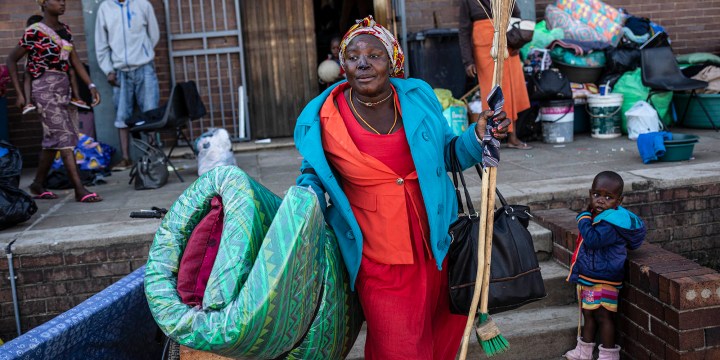OP-ED
Us and Them mentality: Labelling people as ‘foreigners’ breeds xenophobia

The term ‘foreigner’ and the concept of foreignness may not in themselves be xenophobic, but they have become part of the language of xenophobia in South Africa.
The recent outbreaks of violence targeting small businesses owned by migrants and refugees has, once again, sullied South Africa’s reputation.
As in the 2008 and 2015 eruptions of attacks, those in authority deny that these acts are motivated by xenophobia and instead say they are the work of criminal thugs anxious to get their hands on goods without paying for them. This response, which the Southern African Migration Programme (SAMP) has dubbed “xenophobia denialism” is extremely misguided as it means that there is no need to develop anti-xenophobia programmes and policies. If it does not exist, why spend resources counteracting it?
A migrant interviewed recently by SAMP described the violence in very different language:
“South Africans,” he said, “are the owners of xenophobia.” In contrast, xenophobia denialists blame the migrants and refugees for their own victimisation. South Africa would not have this problem, they seem to suggest, if everyone would just “go home” – a sentiment often echoed by those perpetrating the violence.
While denialists like to claim that there is no evidence of xenophobic attitudes in South Africa, repeated national attitudinal surveys over many years conducted by the Human Sciences Research Council (HSRC) and SAMP show precisely the opposite.
Many, though by no means all, South Africans of all races and socioeconomic status hold opinions of migrants and refugees that are extremely negative, hostile and stereotypical. Xenophobia is deeply embedded in South Africa and nowhere more so than in the language used to describe and denigrate migrants and refugees.
Most migrants and refugees in South Africa have, at one time or another, been verbally abused with the insulting word “kwerekwere”. While politicians, officials, the media and researchers refrain from this form of hate speech, they do use language that carries many of the same connotations. Perhaps the best example of this is the constant repetition in public discourse of the term “foreigner” to describe all migrants. Ironically, the extensive use of the word “foreigner” is largely a post-apartheid phenomenon. The apartheid state referred to migrants as “aliens” and those without approved documents as “illegal aliens”.
This label was legitimised in the 1991 Aliens Act and persisted well after 1994. For example, the 1998 White Paper on Migration, constantly referred to all migrants as “aliens”. However, the 2002 Immigration Act proposed the use of new alternate terms: “aliens” became “foreigners” and “illegal aliens” became “illegal foreigners.” These terms have since become embedded in the way in which South Africans refer to anyone not born in South Africa. Government, the media and many researchers now unthinkingly and regularly refer to all migrants and refugees as “foreigners”.
What, if anything, is wrong with calling someone a foreigner? Or indeed, labelling all of South Africa’s over two million residents not born in the country as foreigners?
First, the term is designed to draw an absolute and irrevocable distinction between those who belong in South Africa and those who do not, between “us” and “them”. “Foreigners” are a different species who belong somewhere else, not in South Africa, and can never join “us” because they weren’t born here.
Second, migration to South Africa is complex and there are many different types of migrant. To lump them all together as “foreigners” fails to distinguish between their very different legal status and residence rights and how long they have been here. They should be called what they are – migrants, immigrants, refugees, asylum-seekers. And even those who come without proper documents or overstay should not be labelled “illegal foreigners” unless government is prepared to charge them with a crime.
Third, many migrants, and especially those from our neighbouring countries, have strong and long ties with South Africa and family members who are South African citizens. If they must be labelled at all, better to use their nationalities rather than lumping them all together as “foreigners”. They are Zimbabweans, Mozambicans, Basotho and so on. The term “foreigner” and the concept of foreignness may not in themselves be xenophobic, but they have become part of the language of xenophobia in South Africa.
It is unfortunate that even those who are not themselves xenophobic, such as many journalists and academics, buy into this problematic labelling exercise. They should exercise more care in their choice of language.
And government, for its part, should ensure that this language is not perpetuated in any new legislation and policy that follow from the current White Paper on International Migration. DM
Jonathan Crush is Extraordinary Professor at the University of the Western Cape and director of the Southern African Migration Project, SAMP, and the Hungry Cities Partnership.

















 Become an Insider
Become an Insider